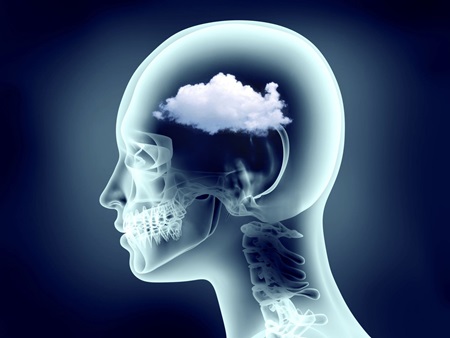Blog

Battling Brain Fog: Strategies and Supplements for Mental Clarity
We've all experienced moments when our minds seem to be shrouded in a thick fog, making it difficult to concentrate, think clearly, or remember important details. This common phenomenon is known as "brain fog." While it's not a medical condition in itself, brain fog can be a significant hindrance to productivity and overall well-being. In this article, we'll explore what brain fog is, its potential causes, and effective strategies to combat it, including the best supplements for reducing brain fog.
Understanding Brain Fog
Brain fog is a catch-all term used to describe a range of cognitive symptoms that affect mental clarity and focus. These symptoms may include:
1. Difficulty concentrating.
2. Memory problems.
3. Reduced mental clarity.
4. Slower thinking.
5. Decreased productivity.
6. Fatigue and lethargy.
Common Causes of Brain Fog
Brain fog can result from a variety of factors, and the causes can be multifaceted. Some common contributors to brain fog include:
1. **Sleep Deprivation:** Lack of quality sleep can lead to cognitive dysfunction, making it harder to focus and think clearly.
2. **Stress and Anxiety:** High levels of stress and anxiety can overload the brain with cortisol, interfering with cognitive function.
3. **Nutritional Deficiencies:** A diet lacking in essential nutrients, especially omega-3 fatty acids, B vitamins, and antioxidants, can contribute to brain fog.
4. **Dehydration:** Even mild dehydration can impair cognitive function, leading to confusion and difficulty concentrating.
5. **Medications:** Some prescription and over-the-counter drugs can cause brain fog as a side effect.
6. **Hormonal Imbalances:** Changes in hormone levels, such as during menopause, can affect cognitive function.
7. **Chronic Illness:** Conditions like chronic fatigue syndrome, fibromyalgia, and autoimmune disorders can be accompanied by persistent brain fog.
Combatting Brain Fog
1. **Prioritize Sleep:** Ensure you get enough quality sleep, aiming for 7-9 hours per night. Establish a regular sleep schedule and create a calming bedtime routine.
2. **Manage Stress:** Practice stress-reduction techniques, such as meditation, deep breathing exercises, yoga, or mindfulness to calm the mind.
3. **Stay Hydrated:** Drink enough water throughout the day to maintain proper hydration. Limit or avoid excessive caffeine and alcohol consumption, as they can contribute to dehydration.
4. **Nutrition:** Consume a balanced diet rich in whole foods, including fruits, vegetables, lean proteins, and healthy fats. Omega-3 fatty acids, found in fatty fish and flaxseeds, can support brain health.
5. **Exercise:** Regular physical activity improves blood flow to the brain and reduces stress. It can also enhance cognitive function.
6. **Supplements for Brain Fog:**
- Omega-3 Fatty Acids: Fish oil supplements are rich in omega-3s and may help reduce inflammation and improve brain function.
- B Vitamins: A B-complex supplement can support energy production and cognitive function.
- Rhodiola Rosea: This adaptogenic herb may help combat stress and improve mental clarity.
- Ginkgo Biloba: This herbal supplement is believed to enhance blood flow to the brain and support memory and cognitive function.
- Nootropics: Some people find that nootropic supplements, like racetams or natural alternatives like Bacopa Monnieri, can boost mental clarity and focus.
It's essential to consult with a healthcare professional before starting any new supplement regimen, as individual needs and responses can vary.
Conclusion
Brain fog can be a frustrating and challenging experience, but with the right strategies and supplements, it's possible to reduce its impact on your daily life. By addressing underlying causes like sleep deprivation, stress, and nutritional deficiencies, you can regain mental clarity and improve your overall cognitive function. Always remember that a healthy lifestyle, including proper nutrition, exercise, and stress management, plays a pivotal role in maintaining a sharp and clear mind.

Comments (0)